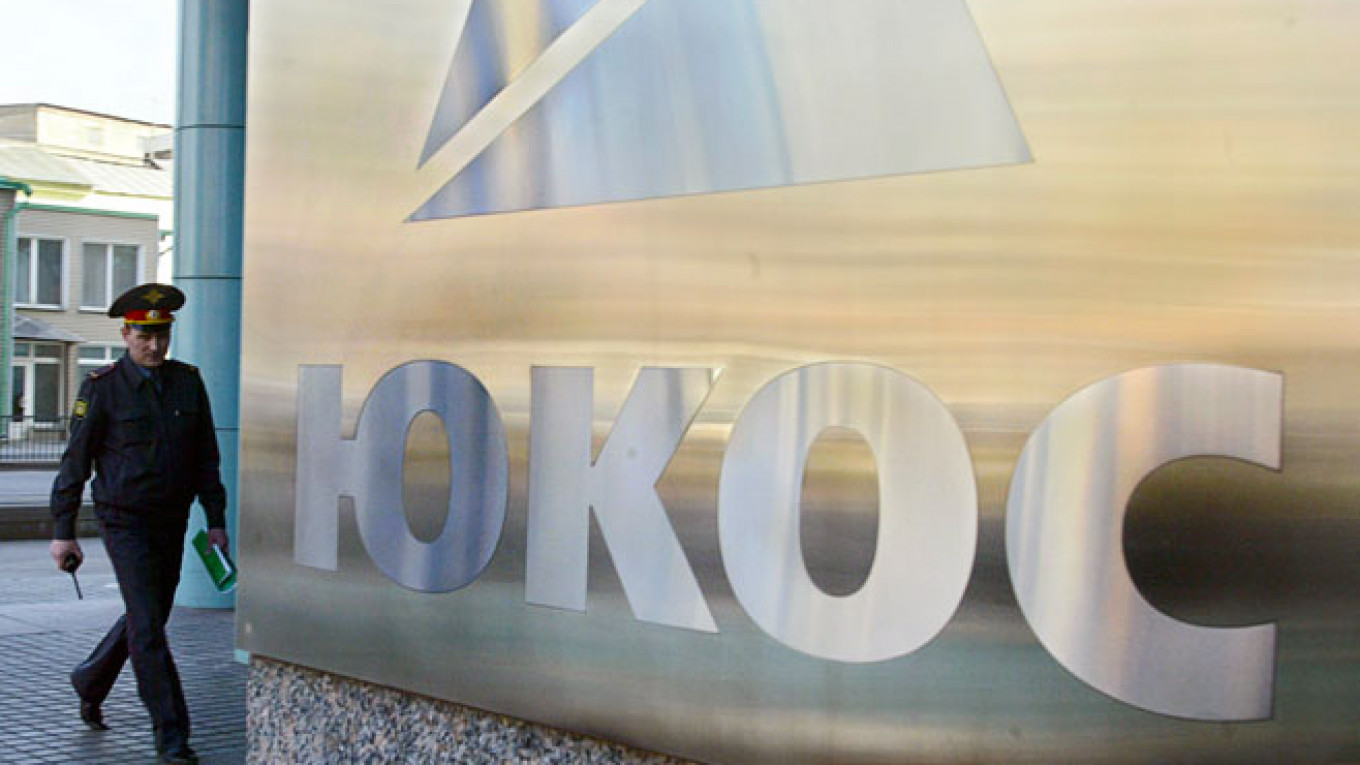For the Kremlin, the problem of Yukos just won't go away.
More than a decade after the giant oil company was dismembered and largely re-nationalized, a group of its former shareholders are doggedly pursuing $50 billion in compensation awarded to them by an international arbitration court in The Hague.
Russian authorities have equally doggedly resisted paying. On March 25, they made their latest counter-attack. Investigators said they were "close to proving" that Mikhail Khodorkovsky, Yukos's former chief executive, and his business associates had stolen their shares in the company.
Vladimir Markin, the spokesman for the Investigative Committee, said the businessmen had rigged an auction for a stake in Yukos in 1995 and then transferred the shares through a dizzying array of shell companies to disguise the fraud. They had no right, he said, to either compensation or sympathy.
"Khodorkovsky got those shares from the state for a song, de facto stealing them," Markin said, before appealing to Russian taxpayers: "Now he is trying to arrange another scam using international courts and hoping to get from the state — from you and me — another $50 billion."
The Permanent Court of Arbitration in The Hague awarded the damages — worth around one-quarter of Russia's total government budget — to four Yukos shareholder companies in 2014. It ruled that Russian authorities had destroyed Yukos by filing massive tax evasion claims against the company after Khodorkovsky fell out with President Vladimir Putin's Kremlin. Khodorkovsky himself is not among the claimants, having transferred his shares to business partners.
Russia has not recognized the ruling, leading the former owners to turn to local courts in North America and Europe to freeze bank accounts, shares and real estate belonging to Russia in those countries.
In response, Russia drew up legislation allowing tit-for-tat seizures of assets belonging to other countries on Russian soil, hired a crack Western legal team led by lawyers White & Case and opened a centralized command center in Moscow to track Yukos claims.
The new evidence being unearthed by Russian investigators could help torpedo those claims, a source close to the lawyers told The Moscow Times. According to the source, the former Yukos shareholders concealed from the Hague arbitration court the trail of shell companies that led back to original, fraudulent share purchase. And, the source added, "if you own something because you stole it, the arbitral ruling cannot apply."
Yukos was one of a clutch of state-owned industrial companies privatized in 1995 under a "loans for shares" scheme that saw a group of oligarchs with political connections scoop up assets at a fraction of their real value. Roman Abramovich, who gained a stake in an oil company thanks to the scheme, has said the sale that he participated in was rigged. Following Markin's statement, Khodorkovsky said on Facebook his acquisition of Yukos had been "unfair," but that it was done "according to the laws of the time."
But if Russia's lawyers are happy with the new evidence, their opponents are incredulous. "Ridiculous is a polite word for it," says Tim Osborne, director of GML, a former Yukos holding company. "Russia has clearly decided it has no chance of avoiding payment on the basis of the arguments it has put forward to date. So with the help of White & Case it is now inventing an older argument which it has previously passed on. It's clutching at straws." No court would give the "new evidence" any credibility, he added.
The timing is significant. On April 20, a local court in The Hague will rule on a Russian appeal of the $50 billion arbitration decision. If that court sides with Russia — and knocks down any appeals that may follow — it will annul the $50 billion compensation claim, says the source close to Russia's lawyers.
Osborne is confident that Russia won't win. If he is right, efforts to seize Russian assets will escalate. Former Yukos owners are already pursuing their $50 billion through courts in the United States, Britain, France, Germany, Belgium and Holland. Soon, they will begin litigation in a number of other countries, Osborne said, though he declined to name them.
They will also widen their attack by petitioning to seize assets belonging to Russian state-controlled companies including energy giants Rosneft and Gazprom, potentially wreaking havoc on Russia's most important industry.
One source close to the Yukos ex-shareholders told The Moscow Times that the new evidence was not meant for the courtroom, but for a local audience: Investigators, the source said, are trying to demonstrate to Putin that they are not sitting on their hands as a new wave of litigation gathers against Russia — one that Russia is likely to lose.
Contact the author at p.hobson@imedia.ru. Follow the author on Twitter at @peterhobson15
A Message from The Moscow Times:
Dear readers,
We are facing unprecedented challenges. Russia's Prosecutor General's Office has designated The Moscow Times as an "undesirable" organization, criminalizing our work and putting our staff at risk of prosecution. This follows our earlier unjust labeling as a "foreign agent."
These actions are direct attempts to silence independent journalism in Russia. The authorities claim our work "discredits the decisions of the Russian leadership." We see things differently: we strive to provide accurate, unbiased reporting on Russia.
We, the journalists of The Moscow Times, refuse to be silenced. But to continue our work, we need your help.
Your support, no matter how small, makes a world of difference. If you can, please support us monthly starting from just $2. It's quick to set up, and every contribution makes a significant impact.
By supporting The Moscow Times, you're defending open, independent journalism in the face of repression. Thank you for standing with us.
Remind me later.






